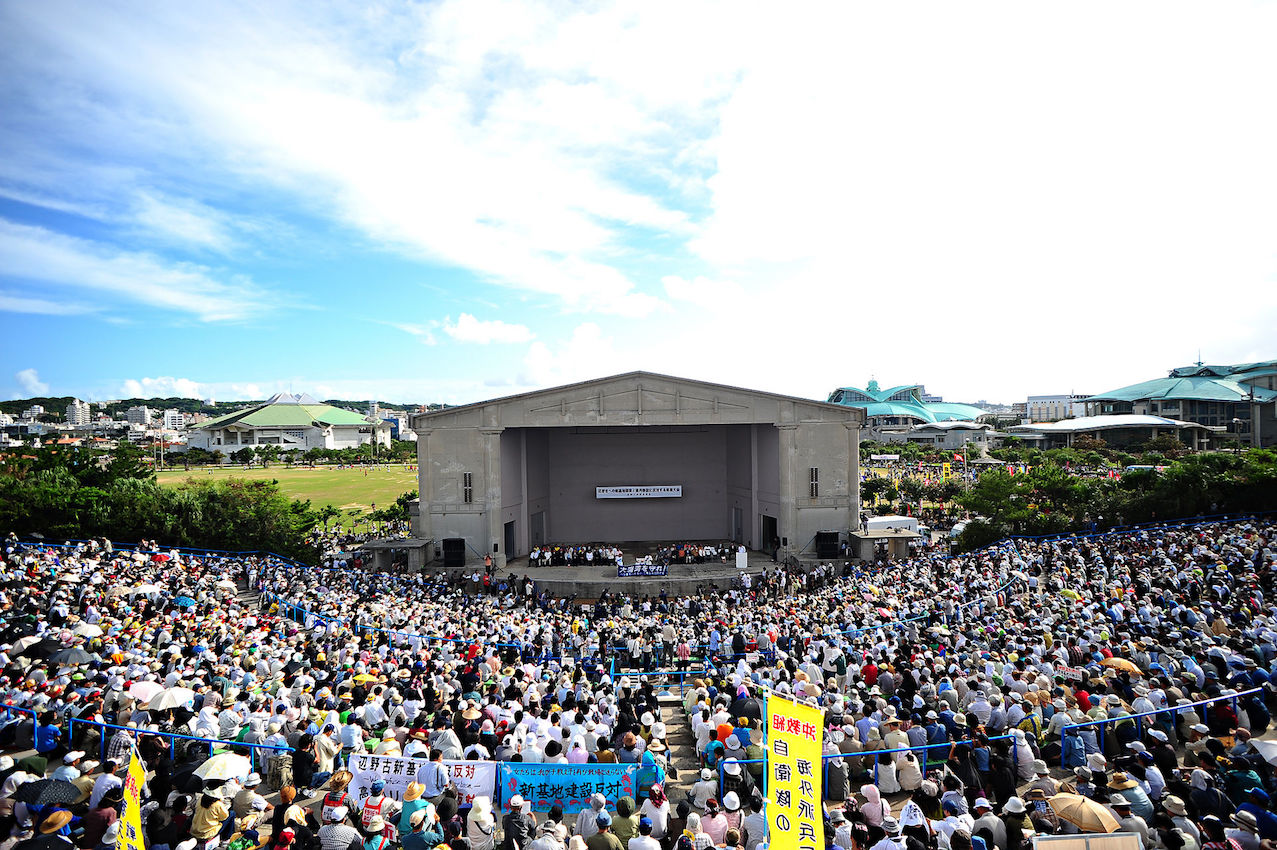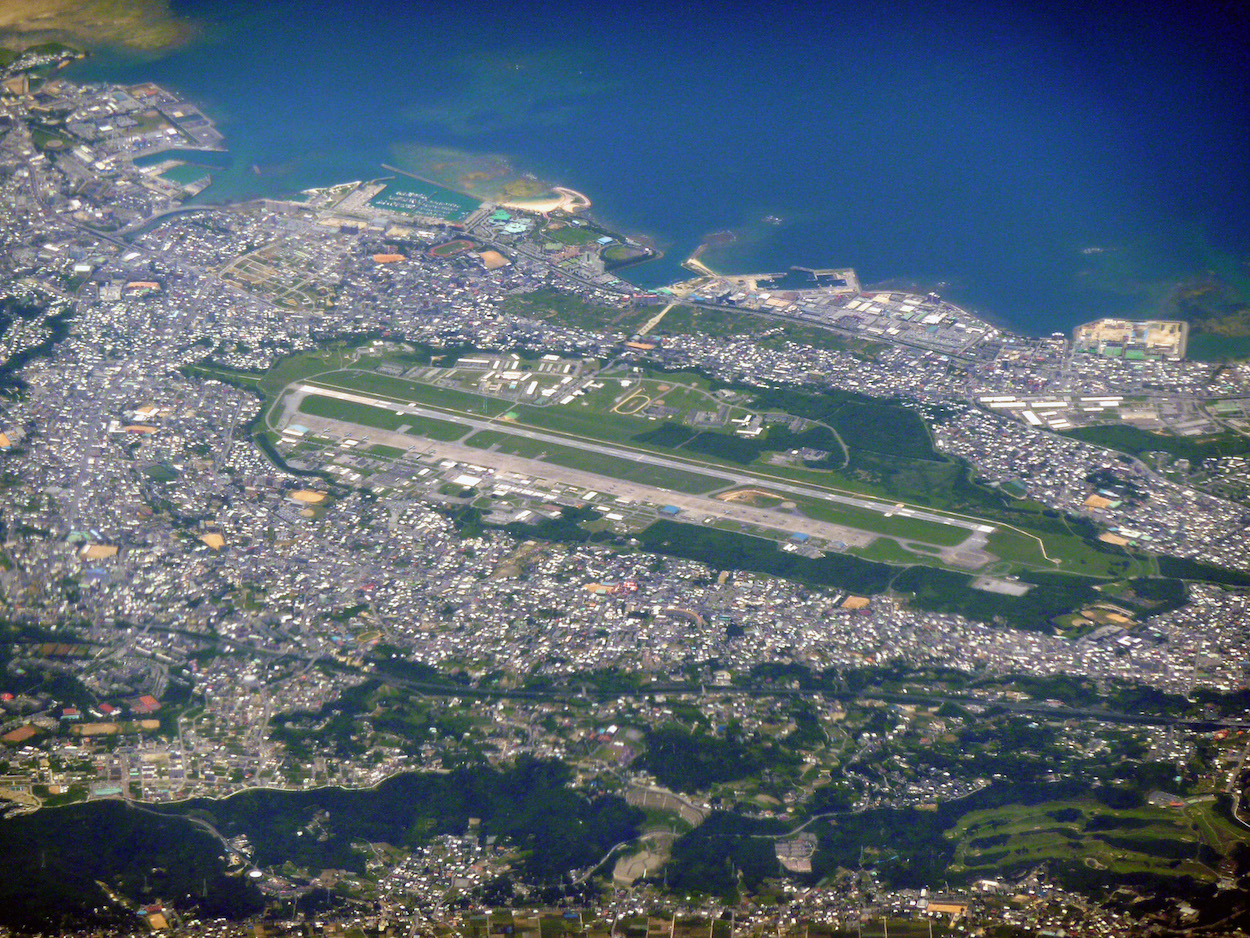by Brian Hioe
語言:
English
Photo Credit: Vitalie Ciubotaru/WikiCommons/CC
CONTROVERSY IN Okinawa last month regarding the construction of a contested American military base should be well-noted in Taiwan, given Okinawa’s proximity to Taiwan. In particular, the outbreak of this controversy raises the fact that while many in Taiwan bank on American empire for support, few pay attention to what the costs for neighboring Japanese or Okinawans might be, or what the political contradictions of endorsing Taiwanese independence while disregarding the right to self-determination of Okinawans are.
Indeed, in the event of a military attack on Taiwan from China, if America were to respond in any way, this would likely come from Okinawa due to the American bases there. Even then, barring a response from the American military, it would be likely that the Japanese government would be obligated to respond in some way. Namely, Okinawa is in fact geographically closer to Taiwan than it is to the Japanese mainland.
 2009 demonstrations against US bases in Okinawa. Photo credit: Nathan Keim/WikiCommons/CC
2009 demonstrations against US bases in Okinawa. Photo credit: Nathan Keim/WikiCommons/CC
Nevertheless, Okinawans themselves are frequently opposed to the expansion of American bases, which bring with them numerous incidents of military accidents that result in the deaths of locals, incidents of sexual assault, forced evictions of homes and villages, and environmental destruction. Given that bases are present in Okinawa as a result of the longstanding military relationship between the United States and Japan, Okinawans, who often view themselves as having a separate language, culture, and identity from the Japanese mainland, see this as a colonial imposition not only from America but also from Japan.
The outbreak of the controversy took place after a public referendum last month showed that the majority of Okinawans oppose new base construction. The referendum showed that 72.2% of Okinawans opposed the base, 19.1% supported the base, and 8.7% did not support or oppose the base.
While the present Abe administration has claimed that the base construction, which takes place in Nago City’s Oura Bay, is a relocation of a present air base in Futenma, many local residents view the Oura Bay base as in fact the construction of a new base altogether.
The Abe administration has pointed to the dangers of the existing base to cite the need for what it claims is merely relocation, citing that Futenma Air Base is often referred to as the “most dangerous base in the world”. This is a common claim in Japanese political discourse about American military bases in Okinawa. Interestingly enough, the moniker of “most dangerous base in the world” for Futenma Air Base came from a 2003 statement about the base by the then-American secretary of defense, Donald Rumsfeld, who was reportedly shocked by the construction of a military airfield in the middle of a crowded city.
 Okinawa governor Denny Tamaki. Photo credit: OIST/WikiCommons/CC
Okinawa governor Denny Tamaki. Photo credit: OIST/WikiCommons/CC
But either way, concerns exist about the construction of a base in Oura Bay due to the unsuitably of the surrounding environment for large military structures, given that the sand in the bay is soft and would require heavy reinforcing for base construction. The resulting environmental damage would affect not only locals but endangered local fauna, such as the Okinawa dugong, which is on the verge of extinction.
The opposition of Okinawans to further base construction is also visible in the October 2018 election victory of Denny Tamaki. Tamaki is half-American, as the child of an American soldier formerly stationed at Okinawa, and ran for governor of Okinawa on a strong anti-base platform.
At the same time, it is clear that Japanese prime minister Shinzo Abe intends to shrug off this referendum, in order to maintain Japan’s longstanding military alliance with the United States. The Japanese government has, in particular, attempted to downplay the effects of development on the Okinawa dugong, as a prominent local symbol, and to portray bases as necessary for stimulating the local economy. Indeed, this is in line with broader efforts by Abe to keep the American military in Japan, as also observed in attempts by Abe to develop close ties with American president Donald Trump.
For Taiwan, which relies on America as the guarantor of its de facto independence from Japan, disappointingly little attention is paid to the plight of Okinawans, many of which themselves call for self-determination from America and Japan in a manner not dissimilar to Taiwan’s call for self-determination. It proves further ironic that supporters of Taiwanese independence frequently claim close ties of kinship with Japan as a means of distancing themselves from China, and that holding a referendum on the issue of independence has been advocated as a means of securing permanent de jure independence for Taiwan.
 Overhead view of Futenma Air Base. Photo credit: Sonata/WikiCommons/CC
Overhead view of Futenma Air Base. Photo credit: Sonata/WikiCommons/CC
Nonetheless, the broader idealization of America in Taiwan proves occluding of the harsh realities of American empire for many, and this may be no exception. Few in Taiwan have to confront the political contradiction of demanding self-determination for themselves, as backed by American military power, yet being willing to deny this to Okinawans in the process.

